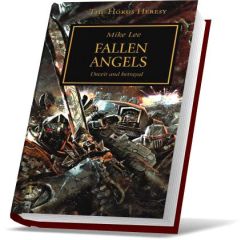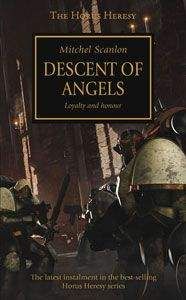Jonathan Howard - Johannes Cabal: The Fear Institute
It was for the captain to call, and he stood watching the oncoming galleys as he considered the options. ‘Captain,’ said Cabal, quietly, at his side, ‘if you give up the ship, you and your men will be slaves within the hour, and dead within a month. I intend to fight.’ He drew his rapier, and awaited Oleander’s decision.
Oleander took a moment to reach it, not least because every reasonable outcome ended in death. All that mattered now was choosing which particular path was most acceptable. ‘Men!’ he shouted. ‘Stand by to repel boarders!’
It is a strange moment when one realises that one’s life is now measured in minutes, and that whatever great plans might have been laid are now all moot and pointless and – in the great burning clarity of the instant – trivial. Cabal did not know what the others were thinking of, neither did he care. All he knew was that the course of his life had long been nothing more than a list of calculated risks, and that, finally, his luck had run out. All the work, all the hardships, all the sacrifices – both personal and of livestock – had been for naught; his work would never see fruition. He would never see her again. But that was not his fault, and he regretted nothing.
He gave the situation one last appraisal before committing to what would likely be the last decision of his life. Behind him, Shadrach tried to look dignified, but was leaning on the mainmast to support him as his knees turned to water. Bose had given up any pretence of bravery and was huddled in the angle between the quarterdeck steps and the rail, trying to will himself into invisibility. Corde held his sword in his hand, and was looking at it with new eyes, as if realising that the skill with which he might wield it would mark the difference between a fast and dishonourable death, or one drawn out a few seconds longer. It would mean at least that he hadn’t died meekly and mildly, a sacrifice to alien gods.
Oleander and his men were armed and ready, facing the enemy with determination on their faces and not a whit of hope in their hearts.
Cabal felt something fluttering in his chest, and applied himself to crushing down the rising panic. Panic would only result in a confused, meaningless death. He would remain calm and rational to the end. The Phobic Animus would not have him for its prey in his last moments. He would continue being his own man to the final second. He could expect nothing less of himself. And so he stood, resolute and perhaps even a little heroic, as one of the approaching black galleys suddenly threw its tiller hard over, turned to port, and smashed into the forward side of the next galley.
Cabal blinked in astonishment, and as he blinked, so did the Dreamlands. There was a sense of waking from a nightmare, only to find oneself still in it. The harbour, the ships, Dylath-Leen, even the sky and the sea, seemed to flutter indecisively between possible meanings and the collateral paradigms. Cabal’s sword became a pistol, then a sword, then some sort of extraordinary long gun, and then it was a sword again. The Dreamlands were changing, but in awkward, inelegant, stuttering steps. He suddenly realised that they weren’t changing nearly so much as being changed. Somewhere, a great consciousness had placed them under the lens of its awareness, and the very act of being observed was making their reality waver, like a thumb flicking through a mail-order catalogue. He looked up, as if expecting an eye of cosmic proportion to be staring at him through the blueness and the high clouds.
Then he heard the screams, and around him the world gelled back into something similar to what it had been. Now, however, one of the attacking galleys was up to the bowsprit in the hull of its neighbour, and the wounded ship was screaming.
But, then, the whole world was screaming. Everyone, even the galley slavers in their shapeless black robes were looking to the sky and screaming, or howling, or sobbing. For the blue morning sky had burned back in a ragged hole, through which could be seen the Dreamlands’ Moon, and the Moon, too, was burning.
Chapter 12
IN WHICH THERE ARE MONSTERS AND CATS, WHICH IS TO SAY, VERY MUCH THE SAME THING
‘What is happening?’ bellowed Oleander, over the fearful cries and the rising note of a strengthening wind. ‘What have those devils done?’
By devils, he meant the masters of the black galleys, but even a glance was sufficient to assure anyone that not only were they not responsible for these new phenomena, but they were even more horrified by them than the humans of Dylath-Leen. The slavers tore away their stolen faces and threw them aside, pulling back their tagelmusts, thin white tendrils, the colour of cave fish, unfurling to undulate at the Moon like weed on the seabed. Then they screamed at the sight of the burning Moon, ‘Ph’nglui k’ytholo mfagnul oseer’akff!’ – a phrase that translates to something far shorter in English.
The men who looked upon these horrors felt their sanity shift, and minds broke in that moment. Corde gave a shriek like a terrified child, and backed away, shaking his head to deny the existence from which his eyes could not be drawn, Bose still lay bundled up in the corner of the deck, his shoulders heaving with his sobs, and Shadrach made no noise at all. Cabal looked around to find the cadaverous Shadrach, and found him clutching futilely at his throat. There, the first guard’s severed arm had him, the great gauntleted hand almost encircling his neck. Shadrach made no sound, but his face was dark and his eyes were starting from his head. Cabal started to run towards the stricken man, but he knew that it was already too late. The hand was not merely strangling Shadrach: it was crushing his neck. Cabal was only a matter of two yards from Shadrach when there was a percussive sound of collapsing cartilage, and the crunch of failing bone. Shadrach’s face became slack, and he fell back against the rail, then over it. Cabal reached it just in time to see the splash and Shadrach’s discreetly expensive shoes with the curled toes disappear beneath the water.
Cursing at an avoidable loss – he should have dealt with the arm after those limbs’ tendency for awkward autonomy had already been demonstrated – he turned back, but the tableau had barely changed, beyond becoming fractionally worse. The fires on the Moon had changed from wide clouds into distinct red points of light, indicating a series of simultaneous explosions across the surface. They showed against the pale lunar rock like buboes on a dead man’s face, and Cabal guessed that these were the cities of the Moon things, the creatures whose agents were even now standing awestruck, venting glutinous polysyllables of arcane vulgarity.
He went to Oleander and shook him roughly by the arm until he gained his attention. ‘The sky,’ said Oleander, a vacant look of shock in his eyes. ‘The sky is broken.’
‘So it is,’ said Cabal, pointedly ignoring it, for the wise man avoids falling through the ice by never setting foot upon it. ‘Oleander, you have to pull yourself together. The slavers are directionless at present, but we don’t know how long that will last. We must press the advantage while they are disrupted.’
But Oleander would only murmur, ‘The sky . . . the sky . . .’ with a terrible expression of haunted loss upon his face, so Cabal hit him, which worked very well. He suddenly focused on Cabal like a startled drunk, and was drawing back his blade when Cabal grabbed his sword hand in one of his own, Oleander’s jaw in the other, and shouted in his face, ‘Time, Captain! We are running out of time. Burning skies and exploding moons are all very well, but aliens with a mass of bavette for faces are our more immediate concern.’
Oleander shook himself free of Cabal’s grip and tried to rally the forces of his routed sanity, searching for a standard by which to gather them. He settled on pasta. ‘What is this “bavette“ of which you speak?’
‘It’s a form of spaghetti.’ Cabal could see the answers to Oleander’s next questions were in all likelihood going to be ‘Pasta’, ‘Italy’, and ‘A country’, so he cut sharply past such quizzical distractions with, ‘Of no importance at the moment. Action, however, is. The creatures are defenceless and vulnerable – you will never get such a good chance to kill the slavers again.’
Finally, the captain’s wits had their standard by which to regroup. The black galleys had long been distrusted among many of the races of men in the Dreamlands, but never before had their true nature been so publicly exposed, and never before had the opportunity for vengeance upon them been so advantageous. This would be a time of righteous glory, with a decent prospect of looting thrown in. It was too magnificent for any man with blood in his veins to resist. Oleander’s blood was red and hot, and he had a strong, no, irresistible urge to see what ran in the slavers’ veins. With a shout that overrode his crews’ terrors, he rushed forward at their head, throwing grappling lines to draw in the nearest galley, a vessel that so recently they would have done anything to avoid.
Cabal didn’t know what their chances were. If they died, at least they would be distracting the slavers as they did so, allowing him and his two remaining charges some precious time to make good their escape. The few inhuman guards scattered about the wharf were as fascinated and discommoded by the destruction of their home cities as the slavers, but how long that would last, he could not say. Neither did he care to bet his future safety against it being more than a few minutes. An alternative presented itself; if they got on to the northern harbour wall, they could follow it around until they were on the mole, then cut across and circumnavigate the edge of the city wall. Yes, there was a tower to protect the city against invaders performing exactly the reciprocal manoeuvre, but with luck they would be staring skywards with gormless expressions upon their pasta-like faces long enough. It was a gamble, but a lesser one than hoping to make it all the way through the city unchallenged.
Corde was staring fixedly at the hull of the black galley that had been torn open by its neighbour. Exposed within lay folds of brain-like tissue into which the shafts of the oars sank, secured with collar plates riveted directly into the living mass. It was screaming, a thin, ululating whine like an unappreciated shaman, but in such volume that it set the teeth on edge. Between the flesh and the shattered wood of the hull flapped thin leaves of a metal that seemed like lead one moment yet glistened with a rainbow of colours the next, colours not to be found anywhere upon the electromagnetic spectrum. The thin layer of metal had been placed there to keep the galley thing’s compartment hermetically sealed; now that it was exposed to the air, its flesh boiled and melted, and the creature screamed endlessly without pause or attenuation.
Cabal quickly surmised that shaking Corde to gain his attention was too time-consuming, too likely to fail, and would involve spending far too much time within his personal space, so he just went directly to his tried and tested supplemental plan. It was more of a punch than a slap, but it proved as efficacious as it had with Oleander, dragging Corde back from the slippery slope of cosmic horror while simultaneously allowing Cabal to alleviate some of his growing frustration with the situation.
‘Come along!’ Cabal barked at Corde, as if he were a recalcitrant schoolboy on a day trip. ‘No time for dawdling.’ Without waiting for a response beyond an expression of outraged astonishment, he ran to Bose’s side and pulled the sobbing man to his feet.
‘Where’s Shadrach?’ demanded Corde, as he followed.
‘Mr Shadrach’s dead,’ said Bose, in a pitiful, small voice. ‘It got him. It killed him. He fell into the water.’
Corde tried to say something, but it failed in his throat.
‘It was an arm,’ added Bose, pathetically and parenthetically.
Cabal looked at Bose, his expression entirely neutral. Then he said, ‘Herr Bose is correct. Shadrach is dead. The loss of the money he carried may present a problem later. Currently, however, we do not have time to discuss that, or what a splendid chap he was, or whatever other reason is making you stand there impersonating a guppy, Herr Corde. We must be gone immediately.’
The wind was rising, and both the Audaine and the galley to which she was grappled were being driven to the lee shore, close by the end of the wharf and the start of the sea wall. All they had to do was wait a couple of minutes, and they would be in position to jump ashore and make off. Corde started for the quarterdeck, but Cabal stopped him, and instead they went into Oleander’s cabin, a much shorter jump from its bow windows down to the shallows. It also meant they didn’t have to watch Oleander and his men engaged in a loathsome, nightmarish fight with the inhuman slavers, a fight rich with blood and ichors, desperation and despair. Finally, Cabal’s plan furnished him with an opportunity to repair their financial misfortunes by breaking into the captain’s strongbox and stealing a quantity of gold coin.
Corde watched him with evident disapproval, but did not stop him. He only said, ‘The captain’s been good to us. He’s out there right now, fighting for his life.’
Cabal finished stowing a heavy purse in his Gladstone, and said, ‘He will shortly be dead, and won’t care. Or he will have defeated the slavers and will be in a position to loot their ship, in which case the loss of this footling quantity of gold will be galling but hardly devastating. In either event, our need is greater than his.’ He paused as the ship shuddered, and grated against the pebbles of the harbour beach. ‘Ah-ha. Our cue to run away like cowards and thieves.’
The great escape was miserable, wet and tiring. They trudged to freedom. Bose and Corde walked with their heads bowed, the better to ignore the torn sky and the wounded Moon. It seemed that lunar cities had decent fire-fighting arrangements, as the red dots grew fewer by the minute. Presumably even as the three men waded through the shallows by the sea wall, and marched with squelching steps up the mole, bloated white Moon toads in brass helmets were hosing down their predictably Cyclopean buildings. They would have to do it themselves, as it was hard to believe their slaves would be in any hurry to help. They would be standing by with space marshmallows on sticks, having the one and only good time they could expect as thralls of the toad things.
Cabal kept his head up and disregarded the heavenly apocalypse as easily as more mundane folk might disregard an unremarkable cloud. He had seen inferno and tempest, and had not only looked into the abyss but the abyss had looked into him, and then made disparaging comments. Some charred troposphere and a smoke-damaged Moon were hardly worth a footnote.
The guards in the watchtower were not of the same liver – should they have livers at all, which seemed unlikely – and were howling skywards with their facial tentacles in sinusoidal agitation. As a race, it seemed they were not used to suffering reverses, and would probably be sobbing into their beer analogue for many months to come.




